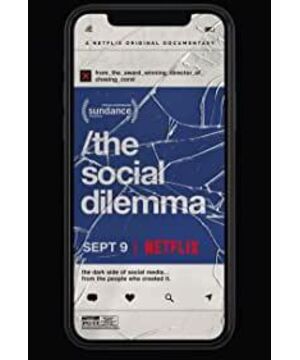It’s ironic. When watching this documentary, the product manager’s must-read list-Hooked, was on hand, which talked about how to create a product that everyone is addicted to (speaking of dilemma, the author recently wrote a new book about how Protect your time from being occupied by social media)
The first third of the documentary is also about this part: In order to get more users and achieve profitability, Internet companies have invested countless funds to study how to make users addicted. Basically, the profit model of Internet companies is based on this, enough screen time, enough advertising. The documentary itself does not have any novel viewpoints. What is more shocking is that the number of self-harm and suicide among American teenagers has increased since 2010, and the consequences of many features on social media were unimaginable in the early days.
Of course, the Internet not only affects the mental health of high school students, but because various algorithms only use clicks to determine user interests, many fake news conspiracy theories are widely spread under the business model based on increasing screen time/stickiness-people live In one's own world, everything he sees is the same point of view. Everyone has his own system of right and wrong, and polarization is getting more and more serious.
This coincides with the article "The Takeaway Boy Trapped in the System". Because of the limited data, the algorithm can only be improved based on the limited real-time feedback of users: clicks, likes, user duration and other indicators, and the designers of the algorithm often do not and cannot anticipate the possible negative effects, leading to today’s situation . Seeing this place, I am curious how the director will explore possible solutions. After all, everyone knows that this is a problem, but it is really too difficult to solve.
The director also knew that, so he only spent a maximum of fifteen minutes (including the end credits), which is 16% of the time of the whole film, very, very, very little discussion.
A regulatory system is necessary, but how should fake news be regulated? Did not say. Who has the ultimate right to speak can make a conclusion about fake news, is it the government, the Internet company, or the users themselves? If either party directly interferes, how can it ensure that it does not affect the freedom of speech? After all, as a user, who can decide what I see? The film compares the recommendation algorithm of Internet companies with human trafficking (and many black industries that I can’t remember), but the problem is that it’s much harder to identify what is real and what is fake than whether human trafficking is good or not. Coupled with the various power play in the shaping of the regulatory system, it is hard to say what the final shape will look like.
In my opinion, the biggest problem with the Internet, technology, algorithms, etc. is that the industry itself is highly fragmented. Due to the nature of the Internet, any small product change can affect hundreds of millions of users at the moment it goes online. But as the people involved in this change: designers, coders, product managers, data analysts, etc., they are ordinary people just like you and me. It is impossible to predict that the like function will cause anxiety for teenagers, and optimization cannot be expected. The delivery time will cause a dilemma for the delivery staff. How to consider the possible social impact in the process of product design and algorithm design is a lesson that every Internet person should take.
Unfortunately, this documentary did not discuss possible solutions at all. The only interesting thing is that everyone mentioned their own method of fighting the algorithm during the credits at the end of the film-this is obviously the content that should be included in the feature film!
In general, the documentary spent too much space to discuss the phenomenon, which is suspected of sensationalism, and there are very few discussions on the difficulty of legislation and how Internet companies should introspect (I am looking forward to seeing these! For example, how Incorporate sociology into the algorithm). In the end, netflix's documentaries seem to be a bit more inciting than facts and reasonable. Looking at the title of this film, it is also quite ironic.
View more about The Social Dilemma reviews











